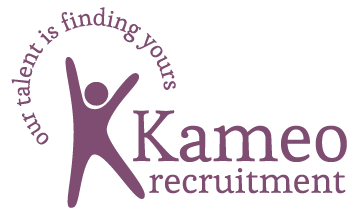
At Kameo, we understand that securing time off for interviews can be a delicate balancing act. Many job seekers face the challenge of how to get time off for an interview without raising suspicion or causing stress in their current workplace. This is especially tricky for those who work 9-5 and must juggle their existing commitments with potential new opportunities.
We’re here to guide you through this process with practical advice and strategies. Our blog will explore your rights and company policies, offer tips on strategic interview scheduling, and provide insights on communicating effectively with your current employer. We’ll also share techniques to manage stress and maintain professionalism throughout your job search. By following our guidance, you’ll be better equipped to handle time off work for interviews confidently and easily.
Understanding Your Rights and Company Policies
At Kameo, we believe it’s crucial to understand your rights and company policies when seeking time off for interviews. This knowledge can help you navigate the process more confidently and reduce stress.
Review your employment contract.
We always advise candidates to scrutinise their employment contract. This document outlines your rights and obligations, including provisions for time off. Some contracts may have specific clauses about job-seeking activities. If your contract doesn’t mention this, don’t worry – it doesn’t mean you can’t request time off for interviews.
Familiarise yourself with company leave policies.
Every organisation has its own leave policies. These may include provisions for personal time, which could be used for job interviews. We recommend reviewing your company’s employee handbook or speaking with HR to understand the types of leave available to you. Some employers are more flexible than others with regards to how much notice you have to give.
Know your legal entitlements.
In the UK, employees have certain statutory rights regarding time off. While there’s no specific legal right to time off for job interviews, you are entitled to a reasonable amount of time off during working hours if you’re being made redundant. However, this only applies if you’ve been continuously employed for at least two years. For non-redundancy situations, the law doesn’t specify entitlements for interview-related time off.
Remember, professionalism are essential when requesting time off for interviews. You’ll be better equipped to handle these situations confidently by understanding your rights and company policies.
Strategic Planning for Interview Scheduling
We know the challenges of securing time off for interviews, especially when you work 9-5. So, we have some practical strategies to help you manage this delicate situation.
Aim for non-peak work hours.
We always advise our candidates to schedule interviews during less busy periods at work. Experts suggest the best interview times are between 10am and 11am or 2pm and 4pm. These slots often align with quieter periods in many workplaces, making it easier to step away without drawing attention.
Utilise lunch breaks or flexitime.
If possible, we recommend using your lunch break for interviews. This approach minimises disruption to your current job responsibilities. If your employer offers flexitime, this can be a valuable tool for managing interview schedules. You might be able to start earlier or finish later to accommodate a midday interview.
Consider remote interview options.
With the rise of remote working, many employers now offer virtual interviews. This option can be a game-changer when you’re trying to balance your current job with your job search. Remote interviews can often be squeezed into your day more quickly, perhaps during a break or even from your car if you have a private space.
Remember, honesty and professionalism are essential. If you need time off for an interview, it’s best to use agreed leave or personal time rather than fabricating excuses. Planning strategically allows you to manage your job search without compromising your current position or raising suspicion.
Communicating Effectively with Your Current Employer
We also understand the delicate nature of requesting time off for interviews. We have some strategies to help you communicate effectively with your current employer while maintaining professionalism.
Keep requests vague but professional.
When asking for time off for interviews, it’s best to keep your reasons vague but honest. We advise using phrases like “I need to take some time off for an appointment” or “I have a personal matter to attend to”. This gives enough explanation without going into too much detail. Most good employers won’t pry and will respect your need for privacy.
Use appropriate terminology (e.g. ‘appointment’ instead of ‘interview’)
We recommend using neutral terms like “appointment” instead of “interview” when requesting time off. This approach helps maintain discretion while being truthful. If your boss asks for more information, you could say you’re going to the doctor or dentist. Honesty is crucial, but you’re not obligated to disclose every detail.
Offer to make up time if necessary.
We suggest offering to make up the time to show your commitment to your current job. You could propose coming in early or staying late to compensate for the time off. This demonstrates your professionalism and consideration of your team’s needs.
At Kameo, we believe in open communication. You might feel comfortable discussing your career aspirations if you have a good relationship with your manager. However, if you haven’t had these conversations, it’s best not to divulge interview information until you have a job offer.
Remember, your time off is part of your entitled compensation. Be polite but assertive when using it. Communicating allows you to manage your job search without compromising your current position.
Managing Stress and Maintaining Professionalism
We understand that seeking time off for interviews can be stressful. We’re here to help you manage this process whilst maintaining your professionalism.
Prepare documentation in advance.
We always advise our candidates to have their documents ready beforehand. This includes updating your CV, preparing talking points, and having any necessary paperwork. Being well-prepared can significantly reduce anxiety and help you feel more confident when requesting interview time off.
Maintain discretion with colleagues.
We can’t stress enough the importance of keeping your job search confidential. Avoid discussing your plans with co-workers, as this information could reach your manager. Instead, focus on maintaining a positive attitude and performing well in your current role.
Focus on current job responsibilities.
While you’re job hunting, it’s crucial to stay committed to your current position. We recommend maintaining your productivity and meeting your work obligations. This approach helps manage stress and ensures you leave on good terms if you secure a new role. Remember, your current employer could be a valuable reference in the future.
By following these strategies, you can navigate the challenging process of securing time off for interviews while managing stress and maintaining professionalism. At Kameo, we’re here to support you every step in your job search journey.
Conclusion
Navigating the process of securing time off for interviews can be tricky, but with the right approach, it’s manageable. At Kameo, we’ve shared strategies to help you understand your rights, plan your interview schedule, communicate effectively with your employer, and manage stress throughout your job search. By following these tips, you can maintain professionalism and confidentiality while pursuing new opportunities.
Remember, honesty and discretion are essential when balancing your current job with your search for a new role. We at Kameo are here to support you every step of the way, offering guidance to help you confidently navigate this challenging process. Whether you’re using lunch breaks, flexitime, or personal days, our advice aims to make your job search smoother and less stressful, allowing you to focus on showcasing your skills and finding the right opportunity for your career growth.
Ready to take the next step in your career? Whether you’re a job seeker, recent University graduate, or seasoned industry professional, our recruitment team is eager to connect with you!





